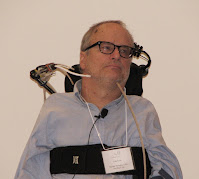Alex Schadenberg
Executive Director, Euthanasia Prevention Coalition
Based on the tone of the articles, it appears that the Boston Globe plans to strongly support the legalization of assisted suicide in Massachusetts.
The first article begins by quoting Rep James O'Day, a Worcester Democrat and the lead sponsor of the assisted suicide bill, who says that he hopes that the assisted suicide bill can pass in 2022.
The article then quotes Governor Maura Healey who states that she would support the bill under certain conditions.
In the last legislature, the assisted suicide bill passed in the Joint Committee on Public Health but failed to advance in the Joint Committee on Healthcare Financing.
The article does state that opposition to the bill continues. Weisman writes:
House Speaker Ronald Mariano last spring said representatives in his chamber remained “very divided” on the issue. Mariano, through a spokesman, declined a request for an interview for this story. Senate President Karen Spilka similarly declined to discuss the matter. In separate statements, both promised to continue reviewing the bill in conversations with their colleagues in the upcoming session.But the article continues with promoting assisted suicide by quoting State Senator Joanne Comerford, the Senate sponsor of the past assisted suicide bill as stating:
The idea of government restricting the end-of-life options of people in pain “becomes dangerous,”The reality is that legalizing assisted suicide is dangerous.
The second article interviews several people who had family members die a difficult death and a few people with terminal and chronic conditions who "want the option."
 |
| John Kelly |
Disability-rights advocate John Kelly, who lives in Boston’s Fenway neighborhood, is director of Second Thoughts Massachusetts, a group opposing what it calls “assisted suicide.” He’s also a quadriplegic who injured his spinal cord in a sledding accident 38 years ago.The Massachusetts Supreme Court is deliberating on the Kligler case that asked the court to find a right to assisted suicide in Massachusetts. That decision is expected soon.
Kelly, 64, has testified against medical aid-in-dying legislation and organized a rally against the appeal to legalize it through the Supreme Judicial Court. He condemns a “better dead than disabled” mindset he sees in those distressed about loss of control at the end of their lives.
“Proponents say it’s about pain and suffering,” Kelly said. “But it’s relatively privileged people’s response to their own disability and dependence on others.”
Folks with disabilities often grapple with a lack of access to health care and home care services, he said. “Everyone should receive effective palliative care,” he said. “But we also believe people should be able to stay in their home and have adequate care there. This is really a values discussion masquerading as a medical issue.”
Kelly is also highly skeptical of treating a physician’s six-month prognosis as an exact science.
“People have to remember that doctors are often wrong about predicting when someone will die,” he said.





